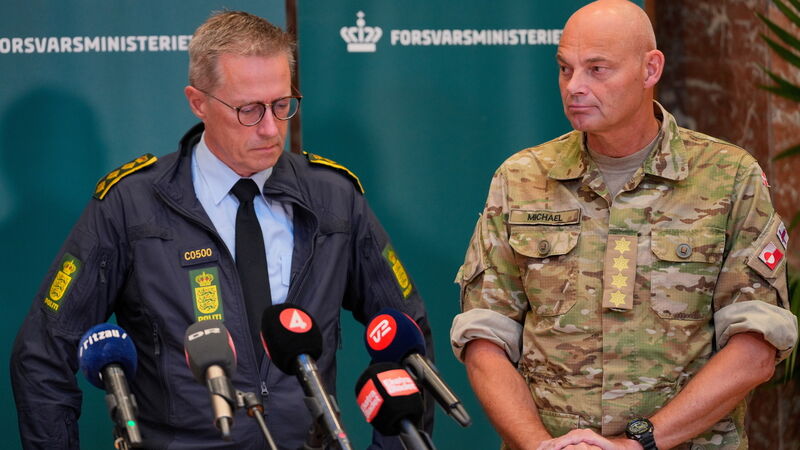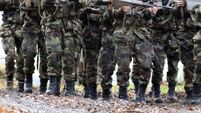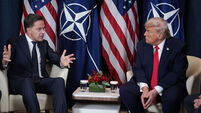The EU is preparing for war – is Ireland?

Chief of Police Thorkild Fogde, left, and Chief of Defence Michael Hyldgaard provide an update on the recent drone activities at several airports in Denmark on September 25. Denmark’s prime minister Mette Frederiksen has warned that Russia was deliberately targeting the EU. Photo: Emil Helms/Ritzau Scanpix via AP
In recent weeks the defence community — including military leaders and civilian analysts — in the United States has had to endure lectures from the Trump administration on why it was necessary to rename the Department of Defense to the Department of War.
According to War Secretary Pete Hegseth, the use of the term ‘defence’ was too passive or even pacifist, when what needed was a military prepared to go out and wage war in the world so Americans could have peace at home. Hegseth has been rightly mocked for his posturing.
















